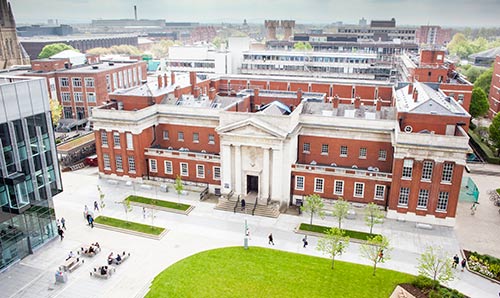The master’s Read more [...]
Science Communication
Course Category: Master and Master of Science
-
Focus of Study
As a student on this programme you will spend time building up practical communication skills, and thinking about the broad range of challenges that science communicators face. Does science communication matter for society? Whose interests are furthered by science news? What are the ethical issues in the communication of health research? When we talk about public engagement, what kind of public do we mean?
The course considers these questions through insights drawn from history, innovation and policy research, media studies, and the first-hand experience of long-serving communicators, and feeds the discussion back into its approach to practical skills.
Course Description
Developed by academic staff from The University of Manchester’s Centre for the History of Science, Technology and Medicine and Manchester Institute of Innovation Research, the programme features masterclasses and project support from leading professionals in print, broadcast and online journalism, museums and science centres, public policy and advocacy, specialist public relations and editorial services, project and event management, together with experienced science communicators from across the University.
Course structure
The full-time version of the programme covers 12 months from September. There is also a part-time alternative, covering half the same classes each semester over two years. Part-time study involves a limited number of days’ attendance per week and can be combined with part-time employment.
All students take three course units consisting of weekly lectures and discussion seminars:
- Introduction to science communication (15 credits)
- Major themes in history of science, technology and medicine (30)
- Research and communication skills (15)
All students also attend a series of one-day intensive training schools on science communication policy and practice, with sessions led by invited contributors including journalists, science centre communicators, policy analysts, and other relevant experts. Students then choose two of the following four options to specialise in for assessed work:
- Science, media and journalism (15 credits)
- Museums and public events (15)
- Science communication research (15)
- Science, government and public policy (15)
The programme is completed by two more open-ended elements allowing students to specialise towards their preferred interests.
The mentored project (30 credits) involves working with support from a science communication professional on developing and analysing an activity close to professional practice.
The research dissertation or portfolio (60 credits), completed over the summer at the end of the programme, gives more scope for independent investigation, and can include original creative work or new research on a particular science communication technique.
Careers
This programme is intended for students seeking to work in journalism, science-media relations, science policy research. science publishing, museums or science centres, or other public engagement fields. It also provides an appropriate grounding for PhD-level research in science communication studies.
The new 2015 version of the programme includes a larger professional practice element than our previous Science Communication pathway (which operated within the History of Science, Technology and Medicine programme). Past graduates of our programmes have gone on to a wide range of relevant posts, including:
- Public Engagement Officer, Centre for Life, Newcastle
- Senior Policy Analyst, Department of Energy and Climate Change
- Director, Scientia Scripta (science-focused copywriting agency)
- Assistant Curator of Technology and Engineering, Science Museum
- Education Assistant, Catalyst Science Centre, Widnes
- Junior Consultant, Six Degrees PR
- Technical Author, Calrec Audio
- Researcher, Pioneer Productions (TV)

